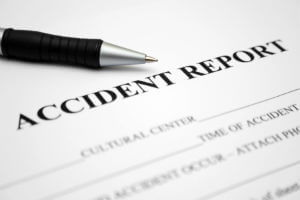
After a car accident, one of the first steps to take is reporting the incident. Many drivers may try to avoid reporting an accident to the police or their insurance company out of fear of being found liable for any injuries or damages involved. Failing to report a car accident is not only not a good idea, but it can also be against the law.
Our attorneys review the important information you need to know about reporting car accidents in Florida and how to protect your injury claim in order to secure the maximum compensation you deserve.
Florida Reporting Requirements
In the state of Florida, car accidents must be immediately reported to the Florida Highway Patrol or the appropriate law enforcement agency if any of the following applies to the incident:
- Resulted in injury or death
- Hit-and-run
- More than $500 in property damage
- Caused by a driver under the influence of drugs or alcohol
- An involved vehicle must be towed from the scene
- A commercial motor vehicle was involved
Dealing With the Police
If the accident meets any of the above criteria, immediately contact local law enforcement if it occurred within a municipality. Otherwise, contact the county sheriff or state patrol. If anyone needs medical attention, call 911 and inform the dispatcher that injuries have occurred.
Dealing With the Insurance Company
Florida is a no-fault state for car insurance. This means that no matter which driver caused the accident, claims are typically filed with your insurance company. Claims are filed under your own policy’s personal injury protection coverage, which provides compensation for financial losses such as medical bills.
In certain situations, you may be able to bring a claim against the driver at fault for the crash. In Florida, the statute of limitations for filing a personal injury lawsuit against an at fault driver is four years from the date of the accident in most scenarios.
Information Needed to File a Car Crash Report
To file a car crash report, you will need to gather the following information:
- Time, date and location of the accident
- Description of all vehicles involved
- Names and addresses of all drivers and passengers involved
- Driver’s license information, including license plate numbers for all involved drivers
- Names and addresses of any witnesses present
- Names and addresses of the insurance companies for all involved policy holders
Exceptions to the Rule
If the accident causes you to be physically incapable of filing a report, you are exempt from doing so until you are no longer incapacitated.
In Florida, you have 10 days to report a car accident. The report needs to be sent to the Department of Highway Safety & Motor Vehicles. This must be done only if the responding officer did not file a report.
If the responding officer did file a report, you do not have to file a car crash report. You will need to obtain a copy of the accident report and forward it to your insurance company.
Penalties for Failure to Report
If you fail to report a car accident that requires contact with law enforcement immediately following the incident, you may receive a traffic violation ticket. This is not a criminal offense, though you may be subject to a fine or other penalty. However, it is a criminal offense if you leave the scene of an accident without providing important information and rendering aid if necessary.
Contact an Attorney for Help With Your Claim
If you were injured in a car accident caused by someone else’s negligence, you may be entitled to compensation for your medical bills, lost wages, and pain and suffering. A skilled West Palm Beach car accident attorney at our firm can investigate your claim and determine the legal options available to you.
Request a free, no obligation consultation today. We charge no upfront fees, and you only pay us if we recover compensation for you.
Contact our office today by calling (855) 722-2552.

 855-722-2552
855-722-2552